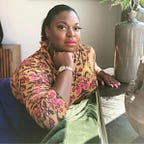Are law schools anti-Black?
Georgetown Law School professor, Sandra Sellers, went viral when she said a racist stereotype about her Black students on a Zoom call.
Law schools are responsible for educating some of our country’s top leaders. 16 U.S. presidents graduated from law school. 16 more U.S. presidents were lawyers before law school was a requirement. Thus 32 out of 46 presidents have been attorneys.
Law schools produce the legal professionals that create laws, interpret the laws, and prosecute on behalf of the law for every demographic in the U.S. Yet, these schools seem to offer little to no inclusion and equity to Black people. This is problematic because Black people in the U.S. are in a legal crisis. We are suffering from police brutality, mass incarceration, racial discrimination, and economic violence at higher rates than other groups.
I went to a high school that was 99% Black and graduated from a Historically Black College & University. Before I went to law school, I knew it would be a change of pace from what I was used to. But, I was not emotionally prepared for the historically racist institution that awaited me.
During orientation, I immediately heard whispers of affirmative action being the reason there were “so many” Black people in our 1L class. Clothing, hairstyles, and attire of Black women were addressed at the first orientation.
White professors and white students criticized Black professors with false stereotypes. White professors, like Sandra Sellers, harbored anti-Black sentiments and stereotypes towards Black students. Tenured Black law professors were slim to none and the few that make it are ostracized. Those Black law professors carry the weight of the Black student population their backs.
Black woman Professor Angela Mae Kupenda discussed the extra work required from Black women law professors. “My observations here focus on the service component, which can be very time-consuming but often matters the least to committees that evaluate faculty members for tenure and promoters. Much has been written about the huge service obligations placed on female faculty and faculty of color. While service obligations are often distributed unfairly. I posit here a reframing of these service obligations to help faculty members like me, a faculty woman of color, forge ahead.” https://dc.law.mc.edu/cgi/viewcontent.cgi?article=1102&context=faculty-journals .
The lack of Diversity, Equity, and Inclusion in law schools create the environment where Sandra Sellers and her co-worker can speak about Black students in an egregious way. Black law students deserve the respect and honor that other law students recieve. The stereotype that Black students are always the least intelligent is false. In fact racism is so sophisticated that despite educational achievements, Black people are still presumed incompentent.
In addition to the lack of Diversity in law school professors, law school is an academically racist environment. For me, it felt dehumanizing to study most of the subjects with no mention of how the law is used for discrimination.
A few of the hard moments include: Learning about property law without mention of the harms of depriving Black Americans (whether enslaved or free) and Native Americans of land. Learning about the use of covenants without careful discussion of racist covenants stifling Black families. Criminal law using dog whistles to avoid addressing racial disparities in eye witness testimony and voir dire (jury selection).Studying the constitution that listed my people as 3/5ths of a person to benefit self serving white politicians. Even the little known racist origins and intentions of the second amendment of the U.S. constitution were not discussed.
As a Black law student, I was expected to study the law like my white counterparts, with no meaningful connection to the evil that it perpetuated. I am expected to have the emotional capacity to experience structural racism, while learning the law that perpetuates structural racism. It is the hidden reality that every Black law student faces.
Yes. Law schools perpetuate anti-Blackness. Lawyers have a social responsibility to be antiracist, yet the legal profession perpetuates racial disparities ad nauseam. Black lawyers that make up %5.5 of the lawyer population are tasked with the brunt of the responsibility while earning less than they deserve. Law schools are doing nothing to change that.
For antiracist, diversity, equity, or inclusion training schedule a 90 minute deep dive for your company. https://qonnectus.carrd.co .
